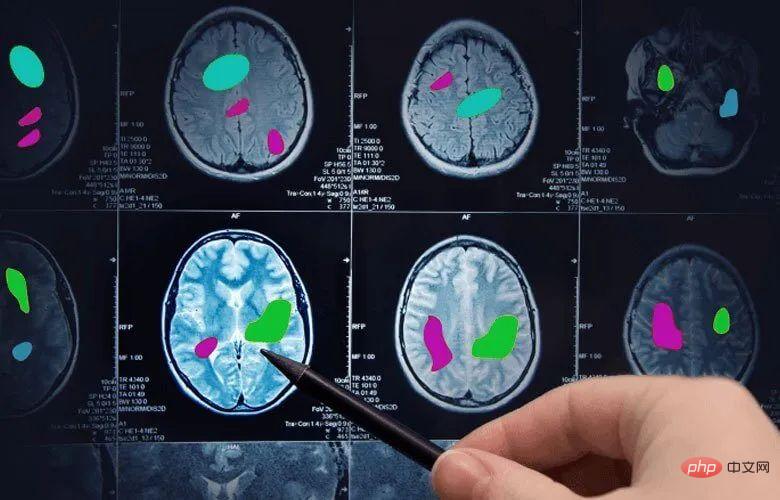Why is artificial intelligence critical to biotech?
Biotechnology uses modern technology to harness biological processes, organisms, cells, molecules and systems to create new products that benefit people and the planet. Laboratory research and development through bioinformatics, exploration and extraction of biomass through biochemical engineering, and development of high-value products. Biotechnology operates silently in various fields such as agriculture, medical, animal, industrial and other fields.
White biotechnology refers to the technology that uses organisms to manufacture products through chemical processes. It is mainly used in the industrial field. It can solve the energy crisis by producing biofuels. For example, for vehicles or heating.

Every business organization working in the field of biotechnology maintains a large number of data. This data must also be filtered and analyzed to be valid and applicable. Operations such as drug manufacturing, chemical analysis, enzyme research, and other biological processes should be supported by computerized tools to achieve high performance and accuracy and help reduce manual errors.
Artificial intelligence (AI) is one of the most helpful technologies that helps biotech manage biological processes, drug production, supply chains, and data processing.
It interacts with data obtained through scientific literature and clinical data trials. AI can also manage difficult-to-compare clinical trial data sets and enable virtual screening and analysis of large amounts of data. Thus, it reduces clinical trial costs and leads to discoveries and insights into any field of biotech operations.
More predictable data makes it easier to establish workflows and operations, improves performance speed and program accuracy, and enables more effective decision-making. 79% of people believe that artificial intelligence technology will affect work processes and is crucial to productivity.
All of this results in a more cost-effective solution. Over the past three years, revenue generated with the help of artificial intelligence has grown by an estimated $1.2 trillion.
Advantages of using artificial intelligence in biotechnology
Artificial intelligence is used in various fields, although the capabilities of this technology, such as data classification And making predictive analytics is beneficial in any scientific field, but has particularly prominent applications in healthcare.
Manage and analyze data
Scientific data is constantly expanding and must be organized in a Arrange in a meaningful way. The process is complex and time-consuming: scientists must undergo repetitive and arduous tasks that must be performed with great concentration.
The data they use is an essential part of the research process, and failure can result in high costs and energy losses. Furthermore, many kinds of research do not lead to practical solutions because they cannot be translated into human language. Artificial intelligence programs help in the automation of data maintenance and analysis. The open source platform powered by artificial intelligence helps reduce the repetitive, manual and time-consuming tasks that lab workers must perform, allowing them to focus on innovation-driven operations.
Gene modification, chemical composition, pharmacological studies and other key informatics tasks are thoroughly examined to achieve more reliable results in less time. Effective data maintenance is critical to every scientific department. However, the most significant advantage of AI is its ability to organize and systematize data into predictable results.
Driving Innovation in Healthcare
Over the past decade, we have faced There is an urgent need for innovation in the manufacture and application of pharmaceuticals, industrial chemicals, food-grade chemicals and other biochemical-related raw materials.
Artificial intelligence in biotechnology is critical to facilitate innovation throughout the life cycle of a drug or compound, as well as in the laboratory.
It helps find the right combination of chemicals by calculating permutations and combinations of different compounds without the need for manual laboratory testing. Additionally, cloud computing enables more efficient distribution of raw materials used in biotechnology.
In 2021, research laboratory DeepMind used artificial intelligence to develop the most comprehensive human protein map (Extended reading: Artificial Intelligence Draws "Revolutionary" Human Protein Map). Proteins perform a variety of tasks in the human organism—from building tissue to fighting disease. Their molecular structure determines their purpose, which can be repeated thousands of times—knowing how proteins fold helps understand their function so scientists can figure out countless biological processes, such as how the human body works, or create new treatments and medications.
These platforms provide scientists around the world with access to data about discoveries.
Artificial intelligence tools help decode the data to reveal the mechanisms of specific diseases in different regions and help build analytical models that match their geographical locations. Before the use of artificial intelligence, time-consuming and expensive experiments were required to determine the structure of a protein. Now, through the Protein Data Bank, scientists have free access to some 180,000 protein structures produced by the program.
Machine learning helps diagnoses more accurately, using real-world findings to enhance diagnostic testing. The more tests you perform, the more precise the results you produce.
Artificial intelligence is a great tool to enhance electronic health records with evidence-based medicines and clinical decision support systems.
Artificial intelligence is also widely used in genetic manipulation, radiology, customized medical treatment, drug management and other fields. For example, according to current research, AI improves the accuracy and efficiency of breast cancer screening compared with standard breast radiologists. Additionally, another study claims that neural networks can detect lung cancer faster than trained radiologists. Another application of AI is the more accurate detection of diseases through X-rays, magnetic resonance imaging (MRI), and CT scans through AI-driven software.

Reduce research time
Due to global New diseases are spreading rapidly across countries. For example, with COVID-2019, biotechnology must accelerate the production of necessary drugs and vaccines to combat these diseases.
Artificial intelligence and machine learning sustain the process of detecting appropriate compounds, assist in their synthesis in laboratories, help analyze the validity of data and supply them to the market. The application of artificial intelligence in the field of biotechnology has shortened the operational performance time from 5-10 years to 2-3 years.
Improve agricultural yield
##Biotechnology is the method of genetically engineering crops to achieve greater harvests The essential. AI-based technologies are increasingly playing a role in studying crop characteristics, comparing quality and predicting actual yields. Agricultural biotechnology also uses robots (a branch of artificial intelligence) to complete manufacturing, collection and other critical tasks.
Artificial intelligence helps plan future patterns of material circulation by combining data such as weather forecasts, agricultural characteristics, and the availability of seeds, compost and chemicals.
Artificial Intelligence in Industrial Biotechnology
The Internet of Things and artificial intelligence are widely used Used in the production of vehicles, fuels, fibers and chemicals. Artificial intelligence analyzes the data collected by the Internet of Things and converts it into valuable data by predicting the results, which can be used to improve production processes and product quality.
Computer simulations and artificial intelligence suggested the intended molecular design. Strains are generated through robotics and machine learning to test the accuracy of developing the desired molecules.

Although it is only the beginning of the application of artificial intelligence in the field of biotechnology, many improvements can already be provided to various fields. Furthermore, the continued development of AI software in biotechnology demonstrates that it can be used across multiple processes, operations, and tactics to gain a competitive advantage.
Not only does it drive innovation, it is a valuable tool that allows for more accurate testing and prediction of results in the lab without the actual performance of the experiment, thus reducing costs. In addition to finding future human necessities in healthcare and agriculture, anticipating potential losses and making projections for companies, they should direct resources toward more efficient production and supply.
The above is the detailed content of Why is artificial intelligence critical to biotech?. For more information, please follow other related articles on the PHP Chinese website!

Hot AI Tools

Undresser.AI Undress
AI-powered app for creating realistic nude photos

AI Clothes Remover
Online AI tool for removing clothes from photos.

Undress AI Tool
Undress images for free

Clothoff.io
AI clothes remover

AI Hentai Generator
Generate AI Hentai for free.

Hot Article

Hot Tools

Notepad++7.3.1
Easy-to-use and free code editor

SublimeText3 Chinese version
Chinese version, very easy to use

Zend Studio 13.0.1
Powerful PHP integrated development environment

Dreamweaver CS6
Visual web development tools

SublimeText3 Mac version
God-level code editing software (SublimeText3)

Hot Topics
 1377
1377
 52
52
 Bytedance Cutting launches SVIP super membership: 499 yuan for continuous annual subscription, providing a variety of AI functions
Jun 28, 2024 am 03:51 AM
Bytedance Cutting launches SVIP super membership: 499 yuan for continuous annual subscription, providing a variety of AI functions
Jun 28, 2024 am 03:51 AM
This site reported on June 27 that Jianying is a video editing software developed by FaceMeng Technology, a subsidiary of ByteDance. It relies on the Douyin platform and basically produces short video content for users of the platform. It is compatible with iOS, Android, and Windows. , MacOS and other operating systems. Jianying officially announced the upgrade of its membership system and launched a new SVIP, which includes a variety of AI black technologies, such as intelligent translation, intelligent highlighting, intelligent packaging, digital human synthesis, etc. In terms of price, the monthly fee for clipping SVIP is 79 yuan, the annual fee is 599 yuan (note on this site: equivalent to 49.9 yuan per month), the continuous monthly subscription is 59 yuan per month, and the continuous annual subscription is 499 yuan per year (equivalent to 41.6 yuan per month) . In addition, the cut official also stated that in order to improve the user experience, those who have subscribed to the original VIP
 Context-augmented AI coding assistant using Rag and Sem-Rag
Jun 10, 2024 am 11:08 AM
Context-augmented AI coding assistant using Rag and Sem-Rag
Jun 10, 2024 am 11:08 AM
Improve developer productivity, efficiency, and accuracy by incorporating retrieval-enhanced generation and semantic memory into AI coding assistants. Translated from EnhancingAICodingAssistantswithContextUsingRAGandSEM-RAG, author JanakiramMSV. While basic AI programming assistants are naturally helpful, they often fail to provide the most relevant and correct code suggestions because they rely on a general understanding of the software language and the most common patterns of writing software. The code generated by these coding assistants is suitable for solving the problems they are responsible for solving, but often does not conform to the coding standards, conventions and styles of the individual teams. This often results in suggestions that need to be modified or refined in order for the code to be accepted into the application
 Can fine-tuning really allow LLM to learn new things: introducing new knowledge may make the model produce more hallucinations
Jun 11, 2024 pm 03:57 PM
Can fine-tuning really allow LLM to learn new things: introducing new knowledge may make the model produce more hallucinations
Jun 11, 2024 pm 03:57 PM
Large Language Models (LLMs) are trained on huge text databases, where they acquire large amounts of real-world knowledge. This knowledge is embedded into their parameters and can then be used when needed. The knowledge of these models is "reified" at the end of training. At the end of pre-training, the model actually stops learning. Align or fine-tune the model to learn how to leverage this knowledge and respond more naturally to user questions. But sometimes model knowledge is not enough, and although the model can access external content through RAG, it is considered beneficial to adapt the model to new domains through fine-tuning. This fine-tuning is performed using input from human annotators or other LLM creations, where the model encounters additional real-world knowledge and integrates it
 Seven Cool GenAI & LLM Technical Interview Questions
Jun 07, 2024 am 10:06 AM
Seven Cool GenAI & LLM Technical Interview Questions
Jun 07, 2024 am 10:06 AM
To learn more about AIGC, please visit: 51CTOAI.x Community https://www.51cto.com/aigc/Translator|Jingyan Reviewer|Chonglou is different from the traditional question bank that can be seen everywhere on the Internet. These questions It requires thinking outside the box. Large Language Models (LLMs) are increasingly important in the fields of data science, generative artificial intelligence (GenAI), and artificial intelligence. These complex algorithms enhance human skills and drive efficiency and innovation in many industries, becoming the key for companies to remain competitive. LLM has a wide range of applications. It can be used in fields such as natural language processing, text generation, speech recognition and recommendation systems. By learning from large amounts of data, LLM is able to generate text
 To provide a new scientific and complex question answering benchmark and evaluation system for large models, UNSW, Argonne, University of Chicago and other institutions jointly launched the SciQAG framework
Jul 25, 2024 am 06:42 AM
To provide a new scientific and complex question answering benchmark and evaluation system for large models, UNSW, Argonne, University of Chicago and other institutions jointly launched the SciQAG framework
Jul 25, 2024 am 06:42 AM
Editor |ScienceAI Question Answering (QA) data set plays a vital role in promoting natural language processing (NLP) research. High-quality QA data sets can not only be used to fine-tune models, but also effectively evaluate the capabilities of large language models (LLM), especially the ability to understand and reason about scientific knowledge. Although there are currently many scientific QA data sets covering medicine, chemistry, biology and other fields, these data sets still have some shortcomings. First, the data form is relatively simple, most of which are multiple-choice questions. They are easy to evaluate, but limit the model's answer selection range and cannot fully test the model's ability to answer scientific questions. In contrast, open-ended Q&A
 Five schools of machine learning you don't know about
Jun 05, 2024 pm 08:51 PM
Five schools of machine learning you don't know about
Jun 05, 2024 pm 08:51 PM
Machine learning is an important branch of artificial intelligence that gives computers the ability to learn from data and improve their capabilities without being explicitly programmed. Machine learning has a wide range of applications in various fields, from image recognition and natural language processing to recommendation systems and fraud detection, and it is changing the way we live. There are many different methods and theories in the field of machine learning, among which the five most influential methods are called the "Five Schools of Machine Learning". The five major schools are the symbolic school, the connectionist school, the evolutionary school, the Bayesian school and the analogy school. 1. Symbolism, also known as symbolism, emphasizes the use of symbols for logical reasoning and expression of knowledge. This school of thought believes that learning is a process of reverse deduction, through existing
 SOTA performance, Xiamen multi-modal protein-ligand affinity prediction AI method, combines molecular surface information for the first time
Jul 17, 2024 pm 06:37 PM
SOTA performance, Xiamen multi-modal protein-ligand affinity prediction AI method, combines molecular surface information for the first time
Jul 17, 2024 pm 06:37 PM
Editor | KX In the field of drug research and development, accurately and effectively predicting the binding affinity of proteins and ligands is crucial for drug screening and optimization. However, current studies do not take into account the important role of molecular surface information in protein-ligand interactions. Based on this, researchers from Xiamen University proposed a novel multi-modal feature extraction (MFE) framework, which for the first time combines information on protein surface, 3D structure and sequence, and uses a cross-attention mechanism to compare different modalities. feature alignment. Experimental results demonstrate that this method achieves state-of-the-art performance in predicting protein-ligand binding affinities. Furthermore, ablation studies demonstrate the effectiveness and necessity of protein surface information and multimodal feature alignment within this framework. Related research begins with "S
 Laying out markets such as AI, GlobalFoundries acquires Tagore Technology's gallium nitride technology and related teams
Jul 15, 2024 pm 12:21 PM
Laying out markets such as AI, GlobalFoundries acquires Tagore Technology's gallium nitride technology and related teams
Jul 15, 2024 pm 12:21 PM
According to news from this website on July 5, GlobalFoundries issued a press release on July 1 this year, announcing the acquisition of Tagore Technology’s power gallium nitride (GaN) technology and intellectual property portfolio, hoping to expand its market share in automobiles and the Internet of Things. and artificial intelligence data center application areas to explore higher efficiency and better performance. As technologies such as generative AI continue to develop in the digital world, gallium nitride (GaN) has become a key solution for sustainable and efficient power management, especially in data centers. This website quoted the official announcement that during this acquisition, Tagore Technology’s engineering team will join GLOBALFOUNDRIES to further develop gallium nitride technology. G




